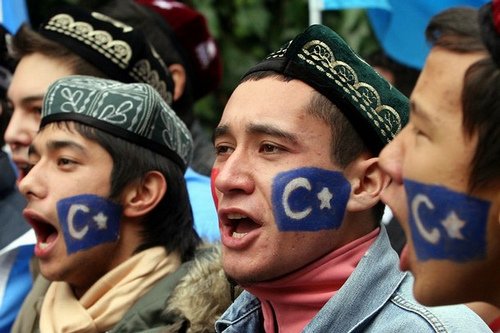East Turkestan: New Law Worsens Detention Rights
UNPO News | 09 March 2012

Beijing has revealed new draft legislation which reconfirms police power in detaining suspects of subversion and other state security charges. Members of the East Turkestan and Uyghur communities have especially been detained on such charges. The draft legislation further states that families of detained suspects must be notified of the detention within 24 hours, unless they cannot be contacted or the contact would be a threat to state security.
Below is an article by the News International :
China’s parliament unveiled legislation on Thursday [8 March 2012] solidifying police powers to hold dissidents in secret criminal detention, prompting an out cry from artist Ai Weiwei and rights advocates caught in a surge of clandestine detentions last year.
Others said, however, the ruling Communist Party had retreated from the most draconian part of new rules for another kind of secretive detention, called “residential surveillance”, which were proposed last year [2011].
Police powers to hold suspects facing subversion and other state security charges are set out in revisions to China’s Criminal Procedure Law sent to the annual parliament, the National People’s Congress, for approval.
“Detainees’ families should be notified within 24 hours, except when impossible, or when they are involved in crimes concerning state security or terrorism, and notification could obstruct investigations,” the government said in a provision on detention in legal amendments issued to delegates and reporters.
The secret detention powers drew criticism of the Communist Party’s sweeping controls to stifle dissent. The party-controlled parliament more or less automatically approves legislation proposed by the government. “I think this shows the present political mentality of lack of confidence and of fear,” said Ai Weiwei, an internationally renowned artist who was secretively detained last year, when asked about the amendments concerning secret criminal detention.
“This is a massive threat to the judicial system and to citizens’ security,” said Ai, who became the most prominent face among hundreds held in the crackdown on dissent. He was eventually released, fined for tax charges he has challenged as unfounded.
In China, “state security crimes” include subversion and other broadly defined charges often used to punish dissidents who challenge the Communist Party. Terrorism accusations have been levelled against Tibetan and Uighur people in western China accused of using violence to pursue independence.
Source:






